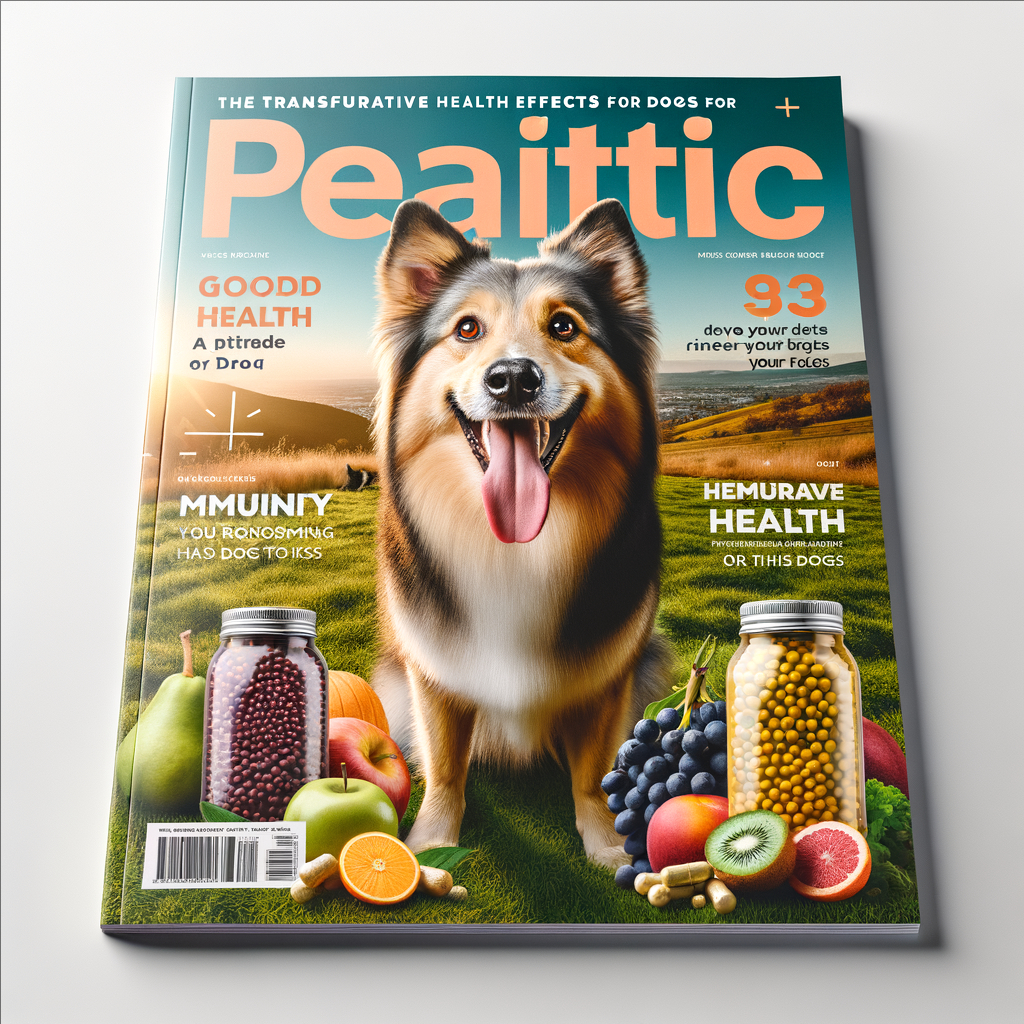Understanding the Benefits of Probiotics for Dogs
What Are Probiotics?
Probiotics are live bacteria and yeasts that contribute positively to your dog’s health—particularly their digestive system. Often referred to as “good” or “friendly” bacteria, probiotics assist in maintaining a balanced gut flora, promoting the growth of beneficial bacteria, and inhibiting the proliferation of harmful ones.
- Types of Probiotics: Various strains of probiotics are available for dogs, including Lactobacillus acidophilus and Bifidobacterium animalis, each serving unique functions to support canine health.
- Sources: Probiotics can be found in various formats such as supplements (powders or capsules), pet-specific yogurt, or dog foods enriched with these beneficial bacteria.
Digestive Health Improvement
One of the most widely recognized benefits of probiotics is their positive impact on digestive health. A balanced gut microbiome ensures that your dog properly digests food and absorbs vital nutrients efficiently.
- Relief from Digestive Issues: Probiotics can alleviate common gastrointestinal problems such as diarrhea, constipation, gas, and bloating. For instance, studies have shown that dogs with diarrhea significantly improved after consistent probiotic supplementation.
- Post-Antibiotic Care: If your dog has recently been on antibiotics—which can disrupt their gut balance—probiotics may help restore this balance more quickly, minimizing the risk of long-term digestive problems.
Immune System Support
A healthy gut is crucial for a robust immune system. Since about 70% of your dog’s immune cells are located in their intestines, maintaining gut health through probiotics can significantly enhance their overall immunity.
- Barrier Function: Probiotics help fortify the intestinal barrier, preventing harmful pathogens from entering the bloodstream and leading to illness.
- Enhanced Response: Regular intake of probiotics can improve your dog’s responses to vaccinations by promoting more robust antibody production.
Mental Well-being
Interestingly, there’s a growing body of research that indicates a significant connection between gut health and mental well-being. An imbalance in gut bacteria may contribute to anxiety or behavioral problems in dogs.
- Mood Regulation: Certain probiotic strains can play a role in improving mood regulation by influencing the production of neurotransmitters, which are crucial for emotional stability.
- Stress Reduction: By supporting digestion and alleviating discomfort from gastrointestinal issues, probiotics may help reduce stress during challenging situations such as vet visits or travel.
Choosing the Right Probiotic
With a plethora of probiotic options available today—from powders to dog treats—it is crucial to select high-quality products specifically formulated for dogs. Here are some essential tips for choosing the right probiotic:
- Consult Your Veterinarian:
– Before adding any new supplement to your dog’s diet, it’s important to discuss it with your vet, who can provide tailored advice based on your dog’s individual health needs.
- Look for Specific Strains:
– Different strains of probiotics serve various purposes. Choose a strain based on your dog’s specific needs—whether it’s for digestive support or boosting immunity.
- Check Quality Standards:
– Opt for products from reputable brands that adhere to strict quality control measures, ensuring potency at expiration dates rather than just at the time of manufacturing.
Real-World Example
Consider Max, a golden retriever who frequently experienced upset stomachs and anxiety during car rides. After introducing a high-quality probiotic supplement containing Lactobacillus and Bifidobacterium, his digestive issues improved significantly. Moreover, his stress during travel was noticeably reduced, making car rides enjoyable for both Max and his owner.
Conclusion
Incorporating probiotics into your dog’s routine can be a simple yet incredibly effective way to enhance their quality of life! From improving digestion and bolstering immunity to supporting mental well-being—these tiny but mighty organisms pack quite a punch in canine care.
So, why not consider adding probiotics to Fido’s daily regimen? Your pup will surely thank you with heartfelt tail wags and improved overall health.
We’d love to hear about your experiences with probiotics for dogs! Have you tried them, and what results have you seen? Share your thoughts in the comments below, and don’t forget to share this blog post with fellow pet owners who may benefit from this valuable information!
news via inbox
Nulla turp dis cursus. Integer liberos euismod pretium faucibua





